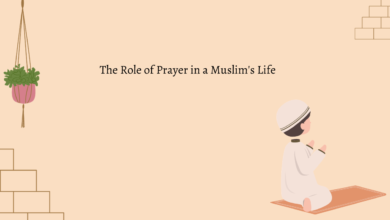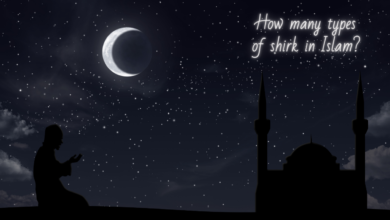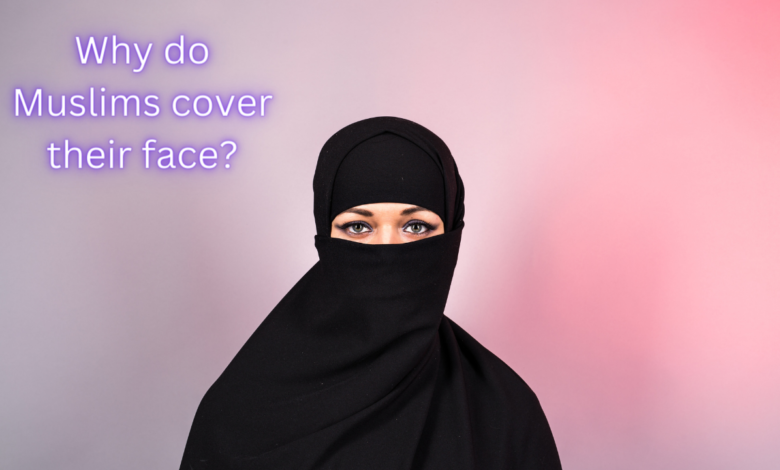
Why do Muslims cover their face?
Some Muslim women choose to cover their faces as a religious practice in accordance with their interpretation of Islamic teachings. This practice is often referred to as “niqab” and is a form of modesty.
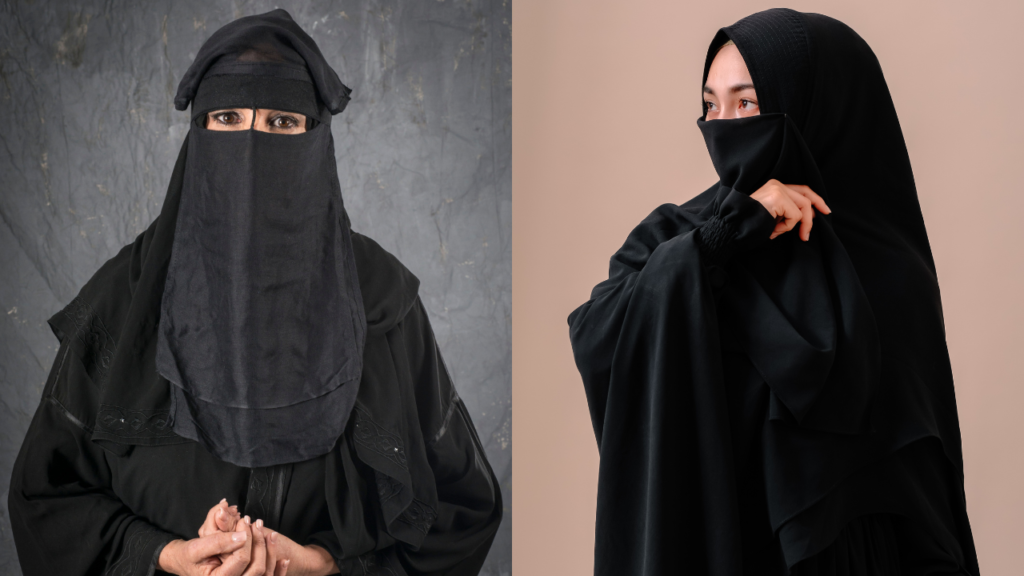
Introduction
The practice of Muslim women covering their faces has long fascinated and intrigued people from different cultural backgrounds. Often referred to as the niqab or the burqa, these veils serve as symbols of religious devotion, cultural identity, and personal choice. In this article, we will delve into the various reasons why some Muslim women choose to cover their faces and explore the diversity of motivations behind this practice.
Religious Belief
One of the primary reasons Muslim women choose to cover their faces is rooted in religious belief. Islam emphasizes the concept of modesty and encourages both men and women to dress modestly. The Quran, the holy book of Islam, contains verses that highlight the importance of modesty in attire. These women believe that covering their faces is a way to fulfill this religious obligation by shielding their beauty from non-mahram (those not closely related) men. They view it as an act of obedience to God’s command.
Cultural Traditions
The practice of covering one’s face also has cultural significance in some Muslim-majority countries. In societies where covering the face is a common tradition, women may feel societal pressure to conform to these cultural norms. While not strictly a religious requirement, adhering to these traditions may be seen as a way of upholding one’s cultural identity.
Personal Choice and Empowerment
Contrary to stereotypes, many Muslim women who wear the niqab or burqa do so of their own volition. They see it as a personal choice that empowers them to take control of their bodies and identity. For some, wearing the veil is a way to assert their autonomy and resist societal expectations. They argue that their choice to cover their faces is as valid as any other fashion or lifestyle choice.
Also Check
- Is Milk Halal in Islam?
- How many Wives did Prophet Muhammad (PUBH) have?
- How are Muslims buried?
- Do Muslims believe in Jesus?
- Why do Muslims Fast during Ramadan?
Protection and Security
Another reason cited by some Muslim women for covering their faces is for protection and security. They may feel that wearing a niqab or burqa shields them from unwanted attention and harassment. In some cases, it provides a sense of security in public spaces, allowing them to move freely without fear.
Spiritual Connection
Covering the face can also be a means of enhancing one’s spiritual connection and focus on their faith. By concealing their faces, these women believe they can better concentrate on their relationship with God and detach from worldly distractions. It serves as a constant reminder of their faith and commitment to their religious duties.
Symbol of Identity
The veil can also be a symbol of identity for many Muslim women. It sets them apart as devout Muslims in a world where adhering to religious principles can be challenging. It serves as a visual marker of their commitment to Islam and can foster a sense of belonging within the Muslim community.
Conclusion
The practice of Muslim women covering their faces, whether through the niqab or burqa, is multifaceted and deeply personal. It arises from a combination of religious, cultural, and individual motivations. It is crucial to approach this practice with respect and understanding, recognizing that it is a matter of personal choice and devotion to one’s faith. By acknowledging the diversity of reasons behind the veil, we can foster greater cultural sensitivity and promote respectful dialogue on this topic.
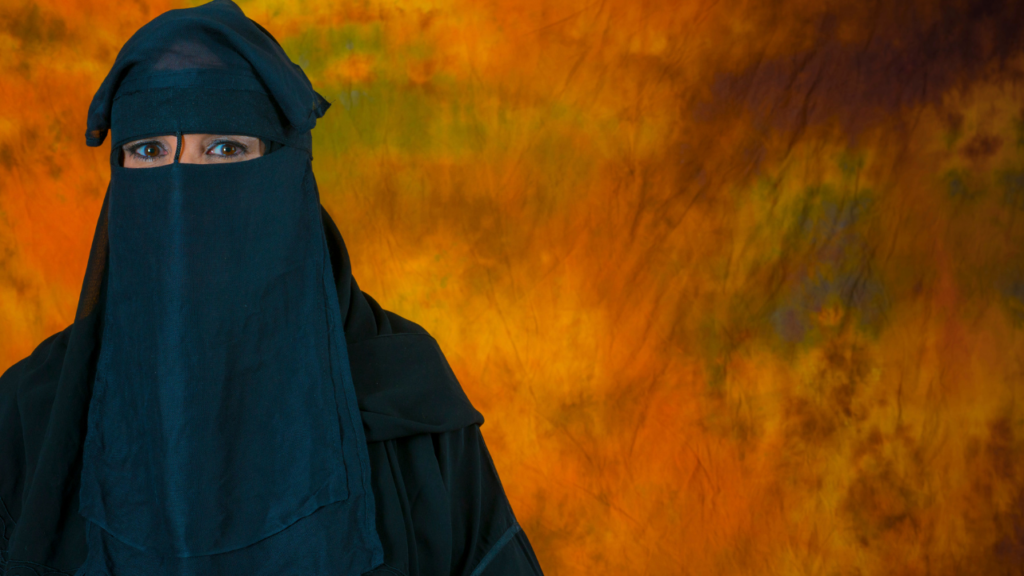
(FAQS) about Why do Muslims cover their face?
Why do some Muslim women cover their faces?
Some Muslim women choose to cover their faces as a religious practice in accordance with their interpretation of Islamic teachings. This practice is often referred to as “niqab” and is a form of modesty.
Is covering the face mandatory in Islam?
The practice of covering the face, such as wearing a niqab, is a matter of personal interpretation within Islam. It is not universally mandated, and different Islamic scholars and communities may have varying opinions on its necessity.
What is the primary reason for Muslim women covering their faces?
The primary reason for Muslim women who choose to cover their faces is to maintain modesty and preserve their privacy, especially in front of non-mahram (non-related) men. It is seen as an act of devotion to God and a way to protect one’s chastity.
Are there variations in face coverings among Muslim women?
Yes, there are variations in face coverings among Muslim women. Some may wear a niqab, which covers the face except for the eyes, while others might wear a hijab, which covers the hair and neck but not the face. The choice of covering varies based on individual beliefs and cultural practices.
Do Muslim women wear face coverings at all times?
Muslim women who cover their faces typically do so in public or in the presence of non-related men. They may choose not to cover their faces in the company of close family members or in private settings where modesty is not a concern.
Can non-Muslims wear face coverings out of respect when visiting Muslim-majority countries?
In some Muslim-majority countries, wearing a face covering out of respect for local customs and traditions may be appreciated, especially in conservative areas. However, it is not mandatory for non-Muslims to do so, and the level of expectation can vary from place to place.
Are there exceptions to the face covering rule in Islam?
Yes, there are exceptions. In Islam, there are situations where face coverings can be removed, such as in front of immediate family members, other women, or when necessary for identification purposes, such as at airports or government institutions.
Are there any practical benefits to wearing a face covering in Islamic culture?
Some Muslim women believe that wearing a face covering provides them with a sense of security, privacy, and protection from unwanted attention or harassment in public spaces. It also serves as a visible expression of their faith and commitment to modesty.
Is there a difference in the reasons for covering the face in different Muslim communities or countries?
Yes, there can be variations in the reasons for covering the face within different Muslim communities or countries. Factors such as cultural traditions, local interpretations of Islamic teachings, and individual beliefs can influence the motivations behind wearing a face covering.
How can one respectfully engage with a Muslim woman who wears a face covering?
Respecting a Muslim woman who wears a face covering involves treating her with dignity and understanding her choice. It’s courteous to maintain eye contact during conversation and avoid making assumptions about her beliefs or background. If you have questions, asking politely and non-judgmentally can promote understanding and dialogue.

